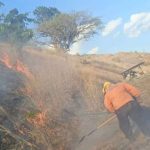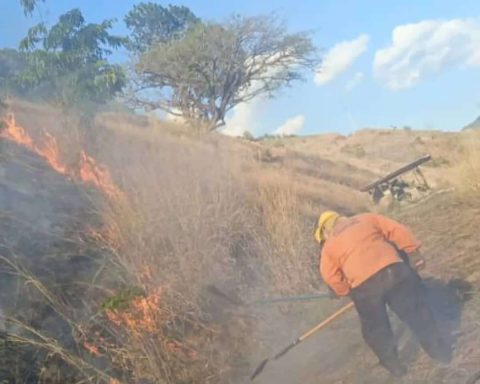
According to him latest report about the state of fisheries in Chile, issued by the Undersecretary of Fisheries and Aquaculture (Subpesca), 57% of the species are in a state of overexploitation or depletion, that is, most of the species are in crisis.
«Of the 28 reported fisheries, considering those fisheries whose conservation status is not updated, 14% (4) are underexploited and 29% (8) in a state of full exploitation. For their part, 8 fisheries are registered in a state of overexploitation (29%) and 8 (28%) in a depleted condition,” the report details.
The marine conservation organization Oceana called on the Ministry of Economy and Subpesca to end certain practices that are threatening the recovery of fisheries, such as the illegal increase in fishing quotas.
“After analyzing the content of the report, we realized that in those species where the quota was increased irregularly through the modification of the risk percentage, the situation continues to be one of overexploitation or depletion,” said the executive director of Oceana in Chile, Liesbeth Van Der Meer.
“Last year, we denounced this practice, where the authority disregarded scientific recommendations in setting fishing quotas,” he added.
In October 2022, Oceana requested the Comptroller investigate the illegal increase in quotas in the common hake, southern hake and golden conger fisheries. This mechanism had already been denounced by the marine conservation organization before the 2nd Environmental Court, instance that determined the illegality of the increase in the southern hake quota corresponding to 2019 due to the lack of scientific foundations.
The Environmental Court ruled that the modification of the global fishing quota for southern (or southern) hake for 2019, as well as the change in the level of risk “are illegal due to lack of due foundation by not indicating any reason or motive for said change”, as stated in the sentence May 2021.
The letter adds that “it is contrary to the precautionary principle, with the safeguarding of marine ecosystems and with the objective of conservation and sustainable use of hydrobiological resources.”
“This situation became a widespread practice in the previous government and is being repeated in the current administration, arbitrarily modifying the risk criteria used in calculating quotas, thus circumventing the system; if the illegal increase in quotas is not stopped, the fisheries will never recover,” said Van Der Meer.
In contrast, the jack mackerel fishery, managed internationally and which is fully exploited according to the Subpesca report, has recovered thanks to the fact that the risk has remained low and decisions have been made under the precautionary principle, an issue that we do not see in other fisheries.
From the NGO they hope that, regardless of the ruling of the Environmental Court and what the Comptroller’s Office may establish, the government of President Gabriel Boric assumes the commitment that the establishment of quotas be decreed under scientific criteria and foundations, and not only by those who have economic interests in the fisheries. It should be remembered that the southern hake quota declared illegal by the Environmental Court is still in force since it was established for three years despite being overexploited.
The debts revealed by the Subpesca report
The report analyzed the situation of 28 fisheries, determining that four are underexploited; eight in full exploitation, such as horse mackerel, common sardine and anchovy stocks between the Atacama and Los Lagos regions; eight overexploited such as the common hake, the southern hake and the golden conger; and eight depleted, among which are hoki and three-finned hake.
From Oceana they warn that another of the gaps in the report, as in previous years, is the insufficient information on the state of brown algae, a fishery of ecological, economic and social importance for northern Chile.
“Although this year the report considers new infographics and data, in some fisheries such as brown algae, we continue with uncertainties regarding their real state of conservation,” said César Astete, Director of the NGO’s Fisheries Campaign.
“We do not have scientific information that allows us to make the best decisions for brown algae, resources that have had an enormous expansion of landings and represent a vital ecosystem for the development of the fishing coves in northern Chile,” added Astete.
Finally, from Oceana they state that the advances in the recovery programs for those fisheries that are depleted or overexploited are still unknown, despite the fact that some species have been in crisis for years.
To find out more about what is happening in the world of science and culture, join our Cultívate community, the El Mostrador Newsletter on these topics. sign up for free HERE
















